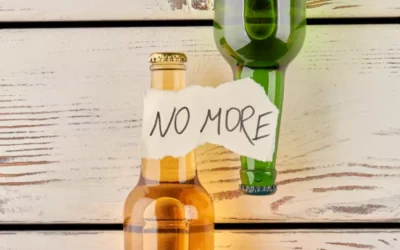“Moderate consumption” is limited to one to two alcoholic drinks per day for healthy men and one alcoholic drink per day for healthy women. One drink is equivalent to 12 ounces of beer, 5 ounces of wine, or 1.5 ounces of distilled spirits. Individuals participating in MM will continue to assess their drinking. If a relapse occurs, they may need to reevaluate drinking levels or even return to a 30-day abstinent period. Moderation Management groups may meet in person or through an online forum, and meetings are held all around the country.
How many alcoholics remain abstinent?
Less than 20% of patients remain abstinent for a full year. Among patients who have been sober for 2 years, the relapse rate is 40%. Patients who have been sober for 5 years are likely to remain sober, but they are still at risk for relapse.
Members can take advantage of in-person meetings, just like AA offers, or opt for online encounters that serve the same purpose while providing more flexibility. The program’s website offers detailed guides on how much alcohol use is permissible and message boards where members can discuss their struggles and find praise for their achievements. When you say, for example, “No more drinking under any circumstances,” you know when you’ve violated that rule. If, on the other hand, you say, “Only moderate drinking from now on,” suddenly, you’re in murky waters. You have to put a lot of mental effort into it and the line between success and failure is always moving, usually to accommodate more drinking.
Sign up to learn more
For these addictions moderation is the prescribed course of action. Even in these instances commitment to moderation is an important factor for success. It may be said by way of justification that there are worse things than smoking—hating, for example—and that is true.

Moderation management programs accept that some people may not agree with complete abstinence from alcohol; as a result, they allow for a certain level of continued, controlled drinking. These programs address patterns of problematic and excessive drinking, and work to teach individuals how to direct and manage these episodes, allowing individuals to then drink in moderation. Moderation Management (MM), a nonprofit organization, is the primary program that uses the technique of moderating drinking rather than stopping it altogether. While moderation may be more achievable for those with a mild or moderate diagnosis than those with severe alcohol use disorder, it’s also a great starting point for those exploring making a change.
Considering Your Options
Moderation Management recognizes the need for an individualized approach. Controlled drinking can help a person reduce their alcohol intake or eliminate it completely. Kishline developed the Moderation Management program after consulting with alcohol addiction treatment professionals.
You may have heard some version of St. Augustine’s observation that “To many, total abstinence is easier than perfect moderation.” 12-step programs emphasize total abstinence from drugs and alcohol. This focus on abstinence, along with strong social support, may be why 12-step programs are effective for so many people. Abstinence is not only necessary for many recovering addicts, but it’s actually easier too.
Abstinence vs. Drinking in Moderation: Which is Right for You?
Treatment providers are available 24/7 to answer your questions about rehab, whether it’s for you or a loved one. Submit your number and receive a free call today from a treatment provider. Take our short alcohol quiz to learn where you fall on the drinking spectrum and if you might benefit from quitting https://ecosoberhouse.com/article/total-alcohol-abstinence-vs-moderation/ or cutting back on alcohol. Take this “getting back to normal” as a chance to rethink your relationship with alcohol. Doing a reality check with a simple online self-assessment might be the first step. Take the Alcohol Use Disorders Test (AUDIT) developed by the World Health Organization (WHO) online.
Moderation management programs give heavy drinkers an alternative to quitting drinking altogether. They help individuals reduce the frequency of drinking using a step-by-step process. This offers a level of flexibility you might not find in abstinence-based programs. The group Moderation Management usually asks a person to evaluate their drinking, often through use of a journal or “drinking diary,” for a period of time initially.
So for him, meetings have always seemed more like a way to get group therapy without either paying for it or admitting to needing it. This idea does not suggest that recovery is as simple as “mind-over-matter,” but Peele believes that people can set an intention to quit in line with their values without the need for inpatient or outpatient treatments. Support groups based on sobriety, like Alcoholics Anonymous (AA), find success through fellowship. AA works on social interaction where members give each other emotional support and practical tips to refrain from drinking. Research even suggests that fellowship can help more people achieve sobriety than therapy. This is because not only is it beneficial to be surrounded by those who share a similar goal to you, but it can also be validating to witness others’ struggles that mirror your own.
You will keep track of what was accomplished and what still needs work. Hopefully, this self assessment has helped you to evaluate your use and make decisions that will best work toward your success as a student, as a leader within your community, and as a family member. The site provides self-help tips and strategies that can aid you in quitting. In the beginning stages of drinking, the experience and effect can be subtle on schoolwork. However, with increased frequency and amount, concentration, motivation and memory can be affected.
The next AA? Welcome to Moderation Management, where abstinence from alcohol isn’t the answer
She admitted she was hooked on alcohol and started seeing a counselor. Alcohol had taken its toll—her job, friends, family, and health had all suffered—and she wanted it out of her life. Her counselor agreed that abstinence was a good solution and they took steps to help Reagan achieve this goal. Moderation offers a path to sobriety without completely eliminating drinking. Limiting the amount of alcohol you drink, or taking breaks from drinking alcohol, are ways to get your alcohol problem under control while providing space for you to address the issues that power your drinking. Maybe you just want a break, or university, parental, academic or legal pressures have come to light, or you believe you just need to cut back.
Perhaps the biggest reason moderation is harder than abstinence is that one drink, or one joint, or whatever it is, immediately weakens your willpower. You only need a little bit of willpower to abstain, but after that first drink, not having a second requires exponentially greater willpower. Drinking impairs your judgment, so even if you told yourself you would definitely have only one drink, after that drink, you have less control than you did when you couldn’t resist one drink. One way to evaluate whether you may be making risky choices with alcohol is to take this 10-question True/False evaluation to review your usual drinking practices. The growing number of sober-curious people and the popularity of sober bars have led to demand for great-tasting and high-quality non-alcoholic drinks.
Normal drinking in recovered alcohol addicts
They partnered with California winemakers to create a wine using traditional methods, and then they removed the alcohol. John C. Umhau, MD, MPH, CPE is board-certified in addiction medicine and preventative medicine. For over 20 years Dr. Umhau was a senior clinical investigator at the National Institute on Alcohol Abuse and Alcoholism of the National Institutes of Health (NIH). In reality, moderation can be even harder than abstinence as it can take as much, or perhaps even more, willpower to stop once you’ve already started. Despite the wide variety of issues and strategies represented there, it was easy to see oneself in everyone’s story.
Why is moderation harder than abstinence?
Perhaps the biggest reason moderation is harder than abstinence is that one drink, or one joint, or whatever it is, immediately weakens your willpower. You only need a little bit of willpower to abstain, but after that first drink, not having a second requires exponentially greater willpower.
Instead of drinking alcohol, plan out the non-alcoholic beverages you can order or make instead. Enjoyable, non-alcoholic alternatives include soda and fresh lime juice, virgin mojitos, soda with fresh fruit, kombucha, or mocktails. MM began to add more in-person meetings and last year, the organization launched a campaign around Dryuary, encouraging people to take the month of January off from drinking. Symptoms of withdrawal can include anxiety, confusion, heart palpitations, increased blood pressure, shaking and tremors, and insomnia. These symptoms can range from mild to life-threatening, so it is imperative to understand your relationship with alcohol to avoid withdrawal. First of all, as mentioned earlier, don’t make a commitment until you are firm in your path to sobriety.
Avoiding temptation is easier than quitting.
If subjects either abstained or drank moderately they earned the opportunity to participate in an ‘enriched’ ward environment—with greater social and recreational opportunities. The results indicate that alcoholics can stop drinking after having begun, and thus support the hope that a technology may be developed for teaching moderation as a treatment goal. The results also suggest that for alcoholics, moderate drinking is more reinforcing than abstinence. The possibility that the opportunity to drink moderately can be used as a reinforcer in treatment programs is discussed. When considered as an entire sample of 84 individuals, participants evidenced significant reductions in all three outcomes over the 7 week intervention period (total drinks, drinking days, and drinks per drinking day). Funded with money from NIAAA and developed by Dr. Reid Hester, Moderate Drinking is a web-based service for individuals wishing to manage their drinking and control alcohol consumption and potential related issues.
Do adults who drink in moderation live longer than abstainers?
Moderate Drinking and Longevity
For example, one study following more than 333,000 adults for about eight years found light-to-moderate drinkers were more than 20 percent less likely to die prematurely from all causes and from cardiovascular disease in particular than people who never drank at all.




Leave a Comment